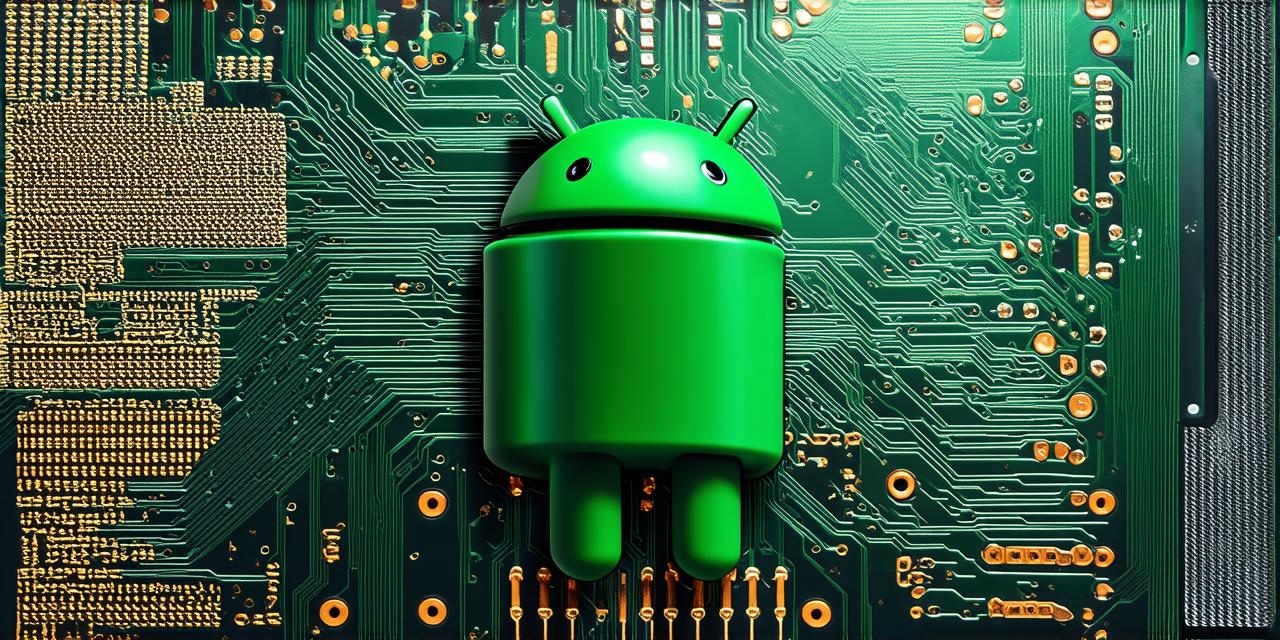Introduction:
Android is the most widely used operating system for mobile devices, with over 70% of the global smartphone market share. This makes it the go-to platform for game development, as it offers a vast array of tools and resources to create engaging and interactive games that can be easily downloaded and played by millions of users around the world.
In this article, we will explore the different frameworks available for developing Android games, and discuss the key features and advantages of each one. We will also provide tips and best practices for selecting the right framework for your game development project, as well as some case studies and real-life examples to illustrate how these frameworks have been successfully used by other game developers.
Android Game Frameworks:
There are several frameworks available for developing Android games, including:
1. Unity
2. Unreal Engine
3. Construct 3
4. Corona SDK
5. Marmalade SDK
Each of these frameworks has its own strengths and weaknesses, and the best one to choose will depend on your specific requirements and preferences. In the next section, we will take a closer look at each of these frameworks and discuss their key features and benefits.
Unity:
Unity is one of the most popular game engines in the world, with over 4 million active developers and over 3 billion downloads. It was first released in 2009 and has since been updated to support a wide range of platforms, including Android, iOS, Windows, and consoles.
One of the key features of Unity is its cross-platform development capabilities, which allow game developers to create games that can run on multiple devices with a single codebase. This saves time and resources, as developers only need to write their code once and then deploy it to different platforms without having to make any major changes.
Another advantage of Unity is its large community of developers and resources, which includes tutorials, forums, and plugins that can help streamline the game development process. In addition, Unity supports a wide range of scripting languages, including C, JavaScript, and Boo, making it easy to find developers with the right skills and expertise.
Unreal Engine:
Unreal Engine is another popular game engine that has been used to create some of the most successful mobile games, such as Fortnite and PUBG Mobile. It was first released in 1998 and has since been updated to support a wide range of platforms, including Android, iOS, and consoles.
One of the key features of Unreal Engine is its visual scripting capabilities, which allow game developers to create complex animations and interactions without having to write any code. This can be particularly useful for mobile game development, where time is of the essence and developers need to get their games up and running quickly.
Another advantage of Unreal Engine is its support for virtual reality (VR) and augmented reality (AR) development, which allows game developers to create immersive experiences that can be played on a wide range of devices. In addition, Unreal Engine supports a wide range of scripting languages, including C++, C, and Blueprints, making it easy to find developers with the right skills and expertise.
Construct 3:
Construct 3 is a game engine that was specifically designed for mobile game development, with a focus on ease of use and accessibility. It was first released in 2014 and has since been updated to support a wide range of platforms, including Android, iOS, and Windows.
One of the key features of Construct 3 is its visual programming capabilities, which allow game developers to create complex games without having to write any code. This makes it an ideal choice for beginners or small teams that don’t have the time or resources to learn a new programming language.
Another advantage of Construct 3 is its support for physics and animation, which allows game developers to create realistic and engaging gameplay experiences. In addition, Construct 3 supports a wide range of plugins and integrations, making it easy to add additional features and functionality to your games.
Corona SDK:
Corona SDK is a game engine that was developed by AWS (Amazon Web Services) specifically for mobile game development on the Lua programming language. It was first released in 2014 and has since been updated to support a wide range of platforms, including Android, iOS, and Windows.
One of the key features of Corona SDK is its lightweight nature, which allows game developers to create games that run smoothly on even low-end devices. In addition, Corona SDK supports a wide range of tools and resources, including an IDE (Integrated Development Environment), a debugger, and a physics engine.
Another advantage of Corona SDK is its support for Lua scripting language, which is easy to learn and use, making it ideal for beginners or small teams that don’t have the time or resources to learn a new programming language.
Marmalade SDK:
Marmalade SDK is another game engine that was developed specifically for mobile game development on the Lua programming language. It was first released in 2011 and has since been updated to support a wide range of platforms, including Android, iOS, and Windows.
One of the key features of Marmalade SDK is its lightweight nature, which allows game developers to create games that run smoothly on even low-end devices. In addition, Marmalade SDK supports a wide range of tools and resources, including an IDE, a debugger, and a physics engine.
Another advantage of Marmalade SDK is its support for Lua scripting language, which is easy to learn and use, making it ideal for beginners or small teams that don’t have the time or resources to learn a new programming language.
Selecting the Right Framework:
When selecting a framework for your Android game development project



